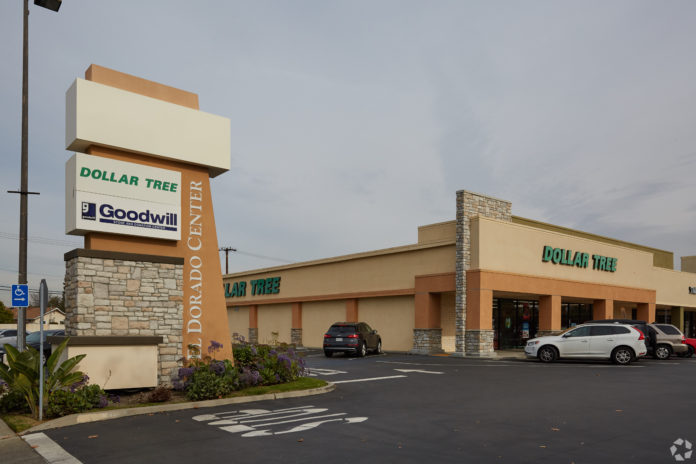According to DPI Chief Executive James Kruse, the retail real estate company has spent the time looking to “preserve, protect and renew” its 21 retail properties and two office buildings.
That includes remodeling some of its centers, which are located in California and Utah and are often anchored by grocery stores and other daily use stores.
“For a lot of our shopping centers, we’re lucky that we have grocery stores, dollar stores, Big Lots that are open and operating and doing fairly well, which anchor most of our shopping centers,” said DPI President Fred Vitt. “They’ve been paying their rent. There are a lot of small shopping centers we’re working with; we try to focus on deferrals if we can to help them out.”
Kruse said DPI has been flexible with tenants during the pandemic and, at times, has granted rent relief. Such moves, he explained, are in the best interests of both the tenants and DPI.
“It’s important to preserve tenants,” Kruse said. “If we were to lose one of our ethnic restaurants … there’s not another one of those restaurant types standing in line waiting to lease,” he said. “It’s important to preserve those people … there’s nobody else that we’re going to be able to talk to. The tenant pool is very shallow and not very populated.”
Extensive experience
Extensive experience
The company was founded in 1972 by Peter Doerken, who later joined forces with industry leader Allen Lynch to grow the business.
DPI’s local properties include the 445 Douglas Building in El Segundo, a property that is 100% leased; the 60,000-square-foot Norwalk Plaza Shopping Center; and the 81,000-square-foot El Dorado Shopping Center in Long Beach.
While the coronavirus has accelerated a decline in retail real estate, experts agree that grocery-anchored centers are faring better than other retail assets at the moment.
“There’s been a lot of capital attracted to these grocery-anchored centers,” CBRE Group Inc.’s Derrick Moore said.
Newmark Group’s Matt Berres added that grocery stores saw strong sales numbers during the pandemic, making centers with these stores more desirable to investors.
Another positive for DPI, according to Kruse, is the recent elevation of Vitt to the role of president.
“He’s like the Swiss army knife; he’s done it all. His appointment as president was overdue and very well deserved,” Kruse said. “He knows everything about the assets and how the company works.”
For a dozen years, Kruse added, Vitt has headed up all management within the company and has overseen leasing efforts as well.
Open to acquisitions
Open to acquisitions
“We’ve not really bought a lot, not because we don’t want to, but things are still very expensive and pricey, and the other thing is getting the financing for these acquisitions,” Kruse said.
DPI Retail has done some ground-up development, but Kruse said he prefers existing center acquisitions.
“There’s a lot of risk in the construction phase and from the ground-up part of the business,” he said. “You never know what you will encounter. We like to see what we are buying.”
DPI, Vitt added, likes to “stay in our lane.”
“That’s our expertise: redevelopment of existing product. The entitlement process can take a long time and a lot of money. We would rather go through and rehab a center,” he said.
Kruse added that this approach allows the company to “get our money working for us sooner” rather than having to wait years for a center to be built.
Vitt said DPI looks for centers where the company can add value. This need could come from an anchor store lease that is nearly over, a property with a successful anchor but other vacancies in the center, refurbishing the area or demolishing some of the center and rebuilding portions of it.
Kruse said that while DPI is looking at new opportunities, theaters, fitness centers and other stores being closed is a complication.
“Do you have a tenancy to survive the pandemic? There are a lot of folks who are not paying rent,” Kruse said of his acquisition criteria.
Looking ahead
Looking ahead
DPI, he added, is using current circumstances as an opportunity to rebrand, remerchandise and, in some cases, bring new tenants into some centers.
The company is also working to refinance some of its properties, but that isn’t always easy.
Lenders are “still pretty hesitant (to loan),” Vitt said. “It really depends on the type of shopping center and what the anchors are. If you’re anchored by a grocery store with a drug store, their appetite is like it used to be. If it’s anchored by a gym or big restaurants or has a lot of restaurants, they are very hesitant or conservative.”
Dongshin Kim, an assistant professor of finance and real estate at Pepperdine University's Graziadio Business School
“To survive this environment, they have to think about their strategy in positioning,” he said.
The centers that do well coming out of the pandemic, he added, would have to offer experiences and services that people can’t get online.
Sometimes, experts say, this means smaller storefronts for traditional retailers.
Vitt echoed that sentiment, saying tenants have been getting smaller for the last 10 to 15 years.
He is also finding that outdoor areas and drive-thrus are becoming huge priorities for tenants. In some cases, DPI may even try to add drive-thrus.

